President Park has summit talks with PM Singh
President Park Geun-hye made a state visit to India on Jan. 16, 2014, and held summit talks with Prime Minister Manmohan Singh of India in New Delhi, India.
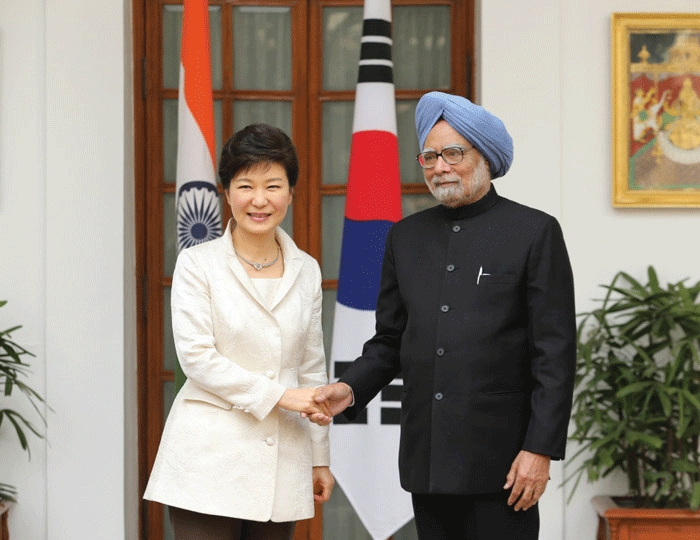
The two leaders then adopted a joint statement in which they agreed to develop the bilateral strategic partnership in a substantive and concrete manner. They recognized that the two countries had made advancements in the bilateral relationship since the establishment of diplomatic ties in 1973, which served to enhance the progress and prosperity of the two countries.
In order to further develop the ties for the next four decades, the two leaders presented a common vision with three elements, namely “a stronger high-level of political cooperation, an open economic and trade environment and deeper cultural understanding.”
At the press conference after the summit, President Park said with confidence, “Since the two countries share a strategic partnership, we discussed ways to promote substantial win-win development. The joint statement will present a future blueprint for our bilateral relationship.”
Economic cooperation:
Prime Minister Manmohan Singh of India emphasized the importance of economic cooperation between Korea and India. President Park asked for the prime minister’s interest and support so that Korean enterprises will be able to more easily take part in Indian infrastructure projects, such as road and railroad construction. In regard to business cooperation and trade, the two leaders discussed a future roadmap for long-term cooperation.
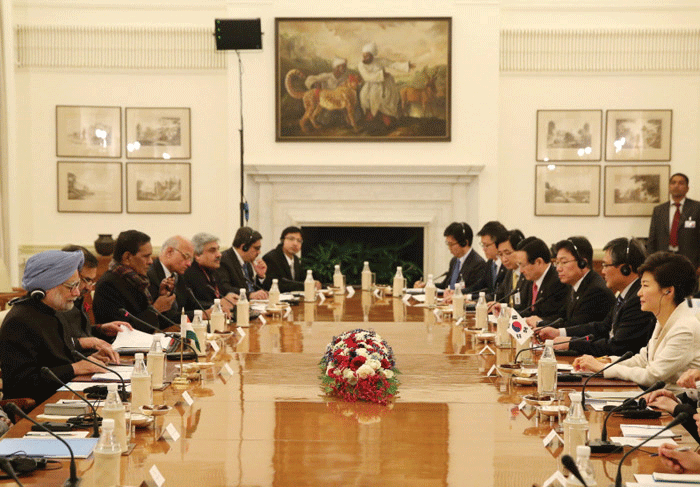
They agreed to share their experiences in business cooperation across a wide range of areas. The leaders shared the common understanding that the Comprehensive Economic Partnership Agreement (CEPA) has contributed to boosting trade and investment between the two countries.
They reaffirmed the need to increase trade in goods and services as well as investment through the upgrading of the CEPA. In this regard, both leaders agreed to make an all-out effort to complete the process as soon as possible and to hold a ministerial meeting between trade ministers in the first of the year in Seoul.
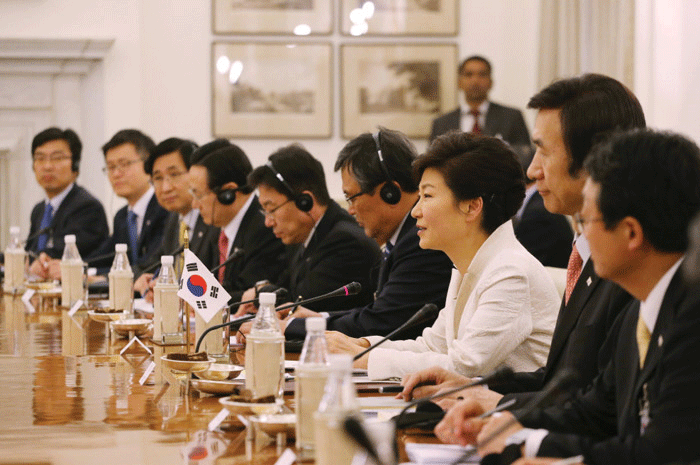
They also agreed to take necessary measures to put the revised Double Taxation Avoidance Agreement into effect as early as possible. Both leaders welcomed progress in the POSCO project in the state of Odisha, including the acquisition of land, a prospecting license and the revalidation of the environmental clearance.
The two leaders agreed to cooperate on the successful implementation of the project. Prime Minister Singh said he welcomes Korean companies’ participation in infrastructure projects, such as electric power plants and railway construction. Both countries agreed to revise the ROK-India Air Service Agreement in order to extend people-to-people exchanges through increased flights. Currently, Korea and India exchange a total of ten flights a week, including four cargo flights.
Upon President Park’s state visit to India, the country decided to provide tourist visa-on-arrival facilities to Korean citizens. Thanks to the decision, visitors with Korean nationality can now receive a visa upon arrival at the airport or seaport in India.
Cooperation in politics, security:
The leaders of the two countries shared a common understanding on the importance of holding the ROK-India Joint Commission, co-chaired by the foreign ministers of both countries, the Foreign Policy & Security Dialogue and the ROK-India Defense Ministers’ Meeting all on a regular basis.
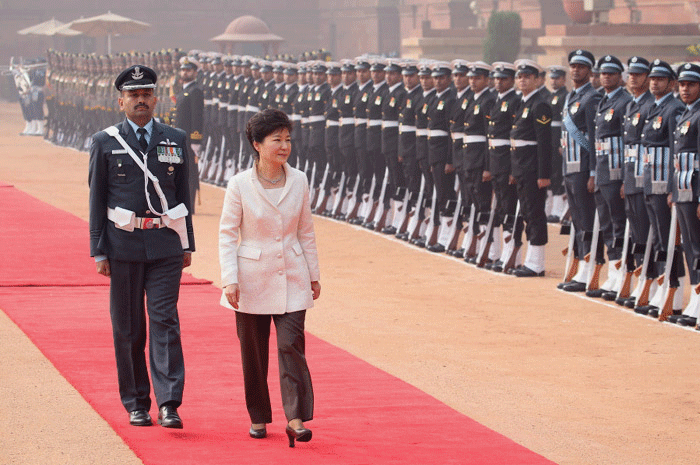
The leaders agreed on the importance of maintaining peace and stability on the Korean Peninsula and on the goal of moving toward denuclearization. They expressed concern over North Korea’s nuclear weapons program which violates international norms and commitments.
They urged Pyongyang to faithfully implement its obligations, including the UN Security Council resolutions. President Park explained her Korean Peninsula trust-building process and her Northeast Asian peace vision to her Indian counterpart. Prime Minister Singh appreciated her efforts to achieve sustainable peace and stability in the region.
The leaders agreed on the need for comprehensive reform at the U.N., including an expansion of the Security Council, to make the organization more representative, accountable and effective. They agreed that reform of the Security Council should reflect contemporary realities and include major developing countries.
Cooperation in science, technology:
To promote sustainable economic growth, the two leaders recognized the importance of creative industries and agreed to strengthen cooperation in IT, which is the foundation for creating a more creative economy.
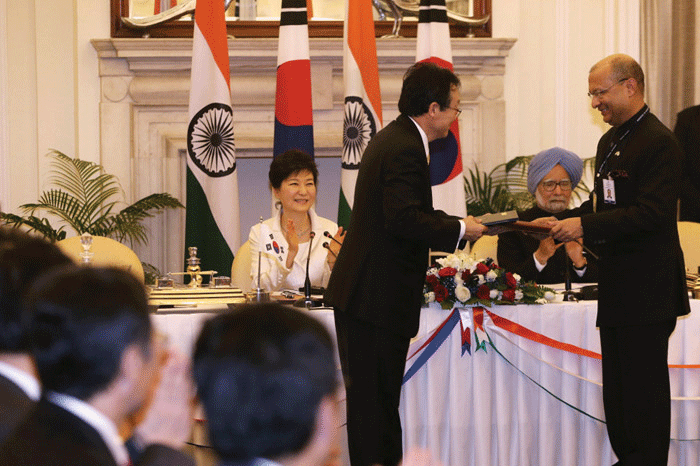
They agreed to establish an ROK-India Policy Forum. Both leaders also agreed to hold regular exchanges to extend cooperation in the civil nuclear energy sector. President Park welcomed the Indian government’s decision to include Korea as one of its visa-on-arrival countries.
Also, the two leaders agreed to further discuss ways to carry out follow-up measures. Finally, Korea and India signed agreements and memoranda of understanding (MOU), including the Agreement on the Protection of Classified Military Information, an MOU on a Joint Applied Research and Development Program in Science and Technology between the Ministry of Science, ICT and Future Planning of Korea and the Ministry of Science and Technology of India, the Agreement between the Indian Space Research Organization and the Korea Aerospace Research Institute for Cooperation in the Peaceful Uses of Outer Space, and the ROK-India Cultural Exchange Program for 2014-2017.

